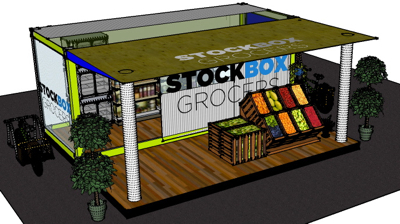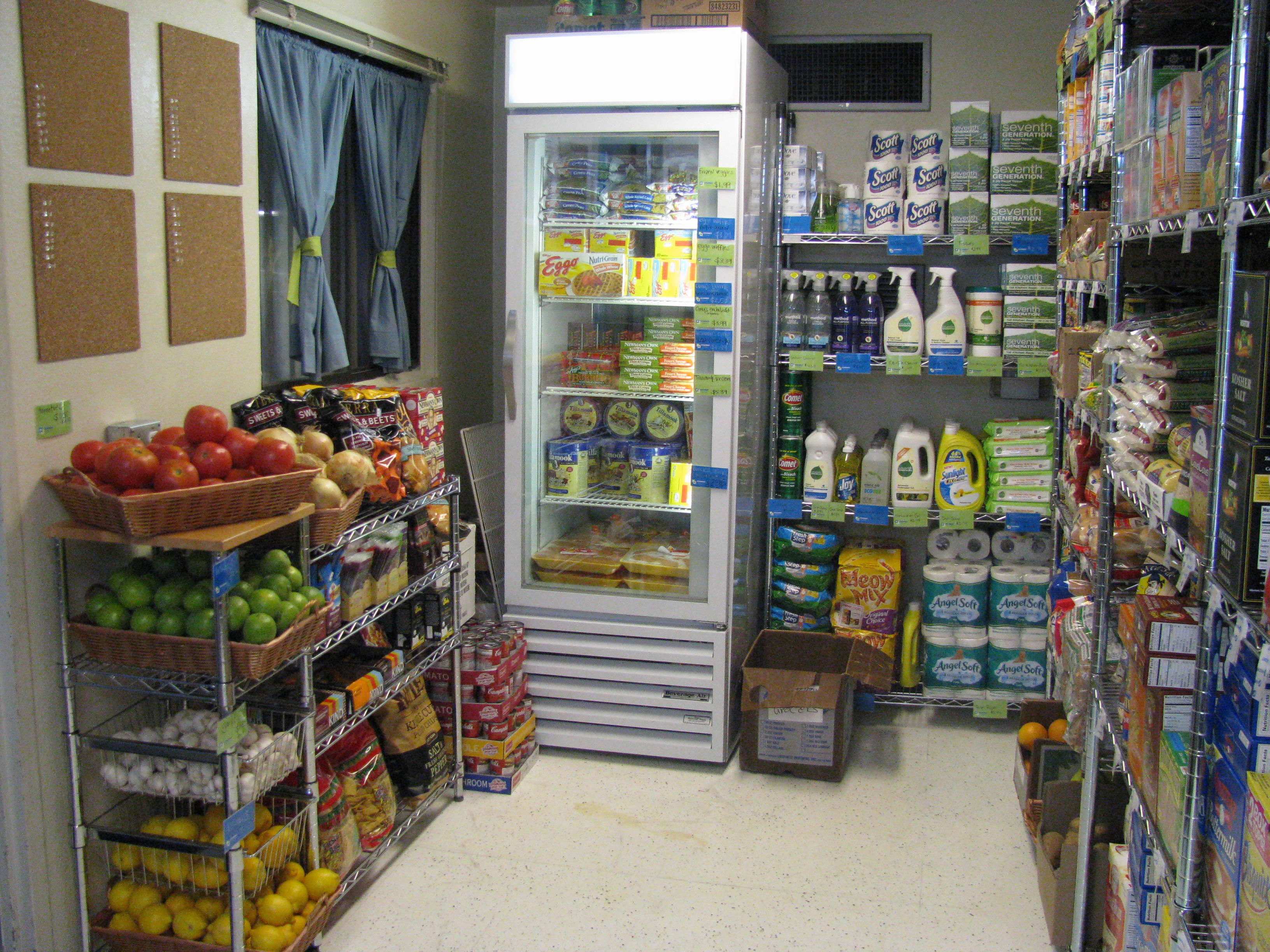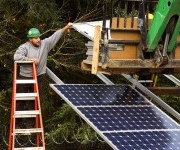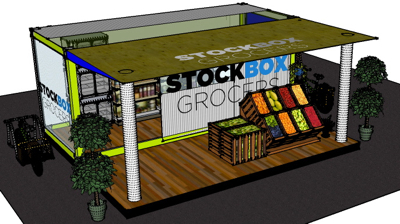 When it comes to bringing fruits and vegetables to so-called food deserts, mobile distribution efforts have long appeared to be a useful solution. Ever since Oakland’s People’s Grocery kicked this trend off nearly a decade ago, food justice advocates have been filling school buses, old postal trucks, and ice cream trucks with fresh produce and other less-processed foods to get real sustenance into the hands of those who need it.
When it comes to bringing fruits and vegetables to so-called food deserts, mobile distribution efforts have long appeared to be a useful solution. Ever since Oakland’s People’s Grocery kicked this trend off nearly a decade ago, food justice advocates have been filling school buses, old postal trucks, and ice cream trucks with fresh produce and other less-processed foods to get real sustenance into the hands of those who need it.
But when Carrie Ferrence, a then-graduate student at Washington’s Bainbridge Graduate Institute, started looking into the preliminary research about existing mobile projects, she found that their limited hours and availability were often leaving customers unfulfilled. “A lot of what people are looking for isn’t just intermittent access to good food, it’s reliable access to good food,” says Ferrence.
She and her project partner Jacqueline Gjurgevich wondered: What happens if you take the wheels off? And, while we’re at it, why not put a tiny food store in a parking lot, like a miniature espresso stand? At a time when so many food businesses appear to have the mobile bug, their idea for a new type of corner store had something no food truck has: staying power.
But it wasn’t until they hit on the idea of building these stores out of reclaimed shipping containers that Ferrence and Gjurgevich were sold on trying to make it happen. They liked the idea of upcycling products that are no longer useful for the shipping industry but could still have another 40-50 years of life left in them.
“[The containers] are a really portable, easy to locate, and replicable building material — the size allows us to either add-on or to grow over time,” says Ferrence. They’re also perfect for parking lots.
After graduating in June, the pair spent “a crazy summer” planning, fundraising (including a $20,000 Kickstarter campaign), and executing a prototype store. It finally opened in Seattle’s Delridge neighborhood last week. This community of 25,000 mostly working-class residents lies in an awkward location: It’s close enough to several grocery stores to keep a major chain from wanting to move in, but just far enough away from those same stores to mean that residents without cars must either walk 45 minutes uphill or take two bus lines.
 To Ferrence, it sounded like the perfect place to put the first Stockbox Grocers prototype. This location will be up and running for two months this fall, after which time the MBA graduates hope to take stock, make more plans, and open several permanent locations in early 2012. The idea was to create a model they could scale up quickly: The stores can be easily “dropped” (via crane and flatbed truck) in just about any area with a parking lot.
To Ferrence, it sounded like the perfect place to put the first Stockbox Grocers prototype. This location will be up and running for two months this fall, after which time the MBA graduates hope to take stock, make more plans, and open several permanent locations in early 2012. The idea was to create a model they could scale up quickly: The stores can be easily “dropped” (via crane and flatbed truck) in just about any area with a parking lot.
It’s a tiny store, but Ferrence says the prototype is already meeting a big need: They’ve stocked their 20-foot-long container with 300 different items, around 10 percent of which is produce.
Although Stockboxes have some things in common with corner stores, they won’t rely on cigarettes and alcohol to make a profit. (Ferrence says cigarettes are off-limits, though beer and wine may appear in some stores in small quantities. But she notes that since there’s rarely a shortage of alcohol available in most food deserts, it’s not a big priority.)
They are working closely with local food access projects, however, to help connect area residents to the store and to gather their input. In the first week, Ferrence says, she was surprised by how many shoppers requested local and organic foods. Overall, customers have been vocal and thankful: making product requests, stopping in for staples, and commenting on just how much can fit in such a small space.
“We’ve really been reminded that communities need food, but they also need an array of small, thriving businesses to be healthy,” she says. “In Delridge, a lot of people just resonate with the idea that we’re bringing business back into the community.”



